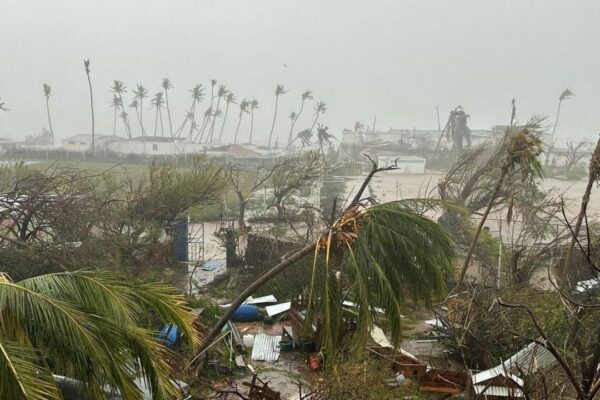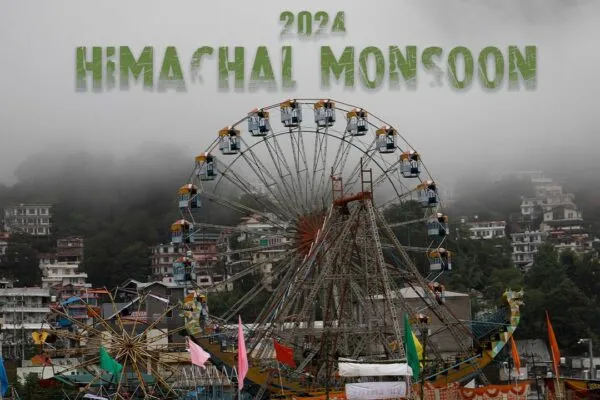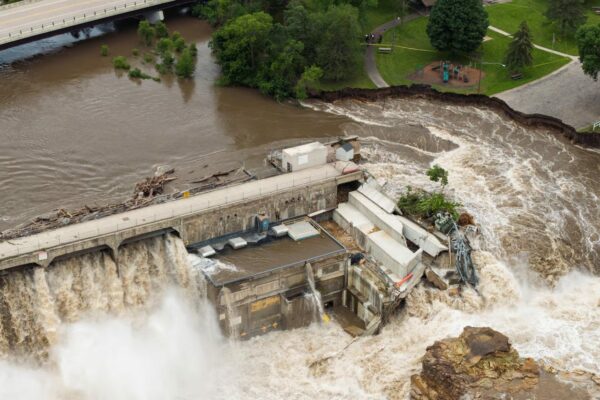Europe is Getting Toasted – Worst Heatwave Triggers Fires, Droughts
Uncontrolled wildfires in France and Spain, an exacerbating drought in Portugal, and the third hottest day on record in the UK – Europe is burning like it's 2050

Image: Jon Nazca/Reuters
The rapidly changing climatic conditions are wreaking havoc throughout the globe, triggering flash floods, forest fires, and intense heatwaves in its different corners. Much of Europe including the UK, Spain, France, and Portugal, is bearing the brunt of global warming in form of the worst heatwave that has triggered fires and droughts, causing hundreds of deaths within a matter of days.
The United Kingdom is experiencing one of the worst heatwaves, with its Meteorological Office declaring its first-ever “red warning” for exceptional heat over the past few days. The UK Health Security Agency raised the heat alert level to 4, prompting the declaration of a national emergency.
On July 19, the UK broke its national record for the highest temperature ever documented at 39.1 degrees Celsius. The temperatures have been predicted to climb higher in the coming days. The scorching heat has disrupted trains and flights in the country, and hospitals are preparing to treat an influx of heat-related cases with an increase in coronavirus cases.
Meanwhile, France has broken over 100 all-time heat records across the nation within a week. According to local authorities, fires have ravaged 27,000 acres of land in the Gironde department of southwest France, making 32,000 people clear the fire-prone areas.
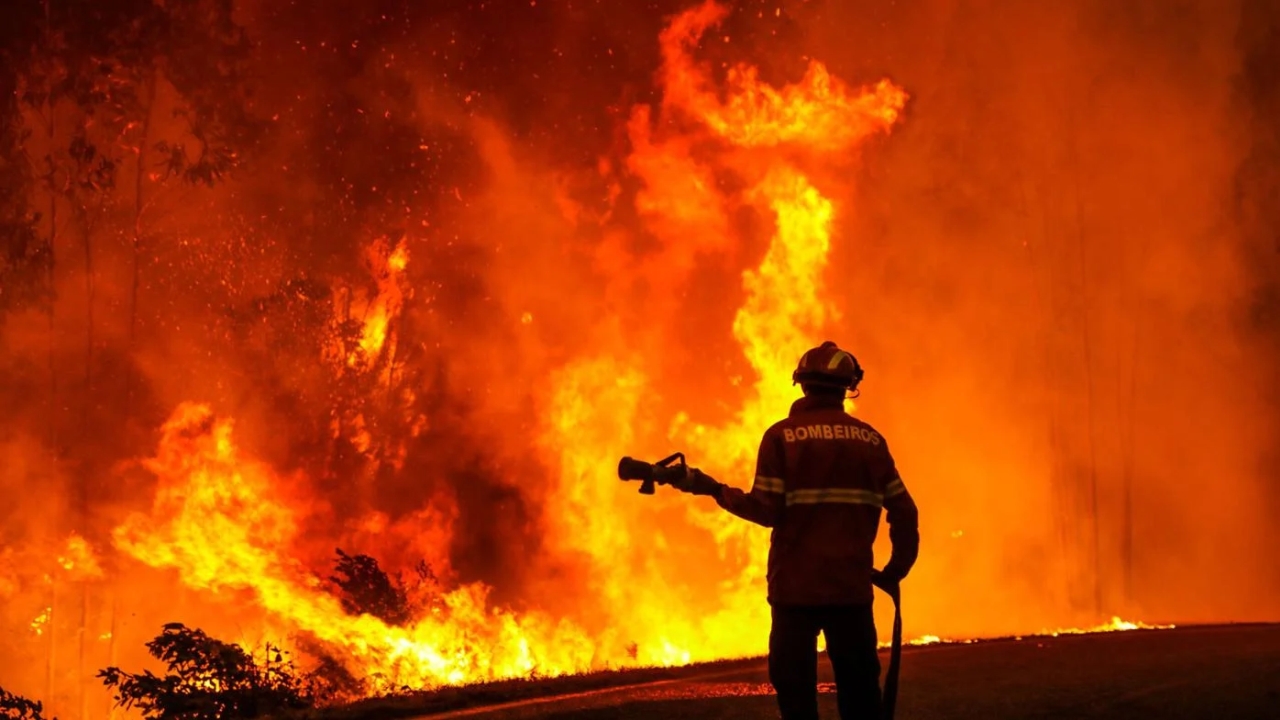
Image: Paulo Cunha/EPA
The town of Cazaux documented 42.4 degrees Celsius on July 18, marking the hottest it has seen since the establishment of its weather station that opened in 1921. Temperatures in major cities in Western France, including Nantes and Brest, soared to hit new records. On the country’s Atlantic coast, wildfires ravaged over 700 acres of land, within less than eight hours, forcing thousands to evacuate to safety.
In neighboring Spain, authorities have estimated over 500 people have died from the extreme heat throughout the weekend, nationwide. Wildfires have destroyed 70,000 hectares (almost double the last decade’s average) of land in Spain, while spread across the central region of Castile and Léon. Fires in the northern region of Galicia have caused the state railways to suspend trains between Madrid and Galicia.
Adjoining Portugal has reported hundreds of deaths as sizzling temperatures worsen a severe drought. According to Portugal’s Health Ministry, nearly 670 elderly people have died due to heat and fire-related incidents. Over 1,100 people are estimated to have died owing to the ongoing heatwave in southern Europe.
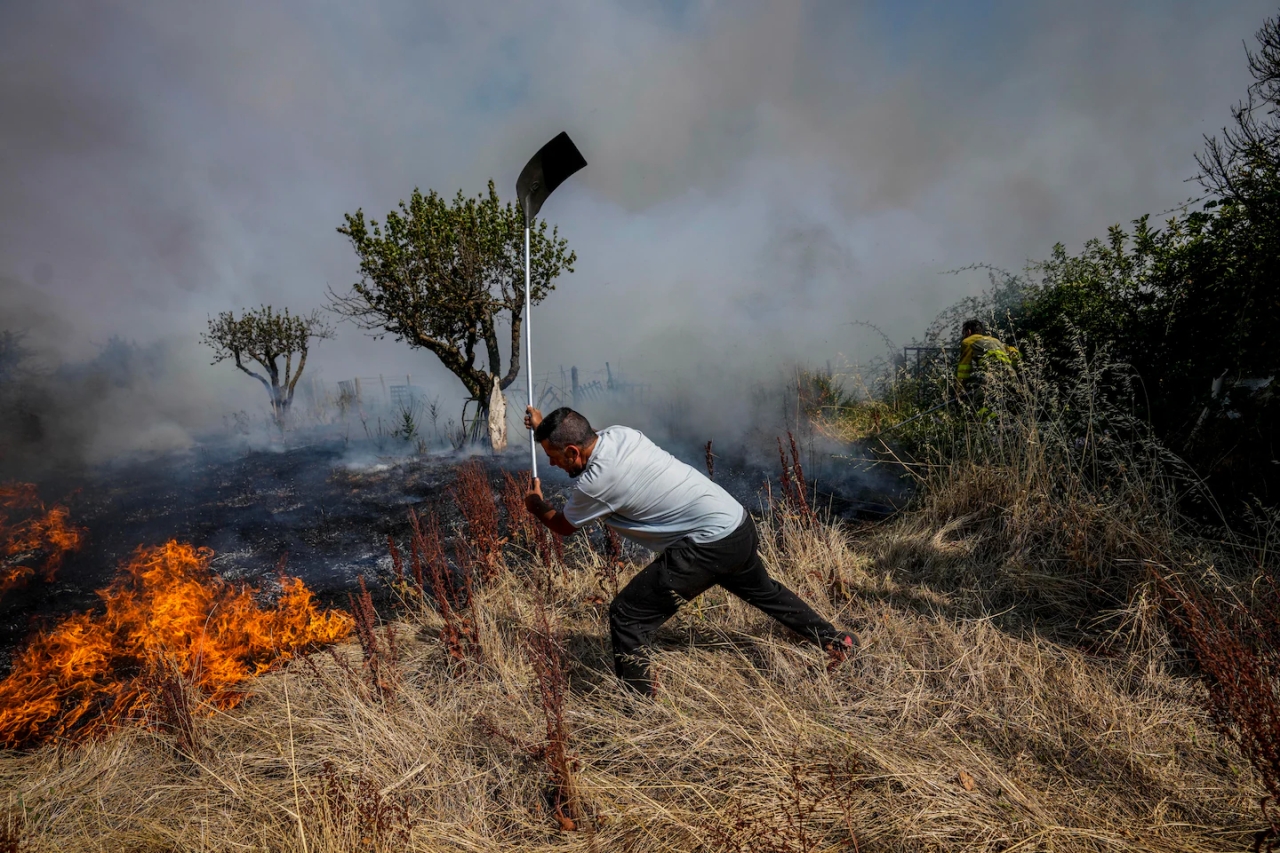
Image: Bernat Armangue/AP
As the UK braces for the worst, the heatwave in France is predicted to move from the west toward the center and eastern parts of the country, including Paris. In the meantime, Belgium’s Royal Meteorological Institute has released a “code red” weather warning for heat in two provinces, with an expectation of temperatures rising up to 40 degrees Celsius in the west and southwest.
The warning read:
With such very high temperatures, certain measures will be necessary: drink regularly, wear lighter clothes, spend the day in cooler rooms, monitor the state of your health regularly, eat easily digestible food (and in smaller portions), keep doors and windows closed to keep the heat out. Pets and animals also need extra care.
Momentos de pánico en el tren Madrid-Ferrol a la altura de Zamora-Sanabria, 9:30hs. El tren continuó el trayecto tras unos minutos parado. @renfe @adif @lavozdegalicia pic.twitter.com/YXcuBXlIJQ
— Francisco Seoane Pérez (@PacoSeoanePerez) July 18, 2022
As if that wasn’t enough, researchers at the European Union Commission have revealed that nearly half of Europe, including the UK, is at facing the threat of severe drought. The Joint Research Centre said that the drought in much of the continent is imminent as the winter-spring precipitation deficit was worsened by early heatwaves in May and June. The water supply is likely to diminish severely in the coming months.
The reason why Europe is burning up like it’s 2050 is the changing weather patterns, oceanic and atmospheric circulation, and dry soil.
Members of #emergency #services work to contain a wildfire near Lezha, #Albania, July 19, 2022. REUTERS/Florion Goga #Reuterspictures #photojournalism #onassignment #fires #wildfires #EuropeHeatWave pic.twitter.com/XhhdjYjV8A
— Florion Goga (@FlorionGoga) July 20, 2022
Huge fire at Dartford Heath, England.
📽️ Tim Cross | Twitter#fire #hugefire #wildfire #England #Dartfordfire #Europe #EuropeHeatWave #HeatWaves #temperature pic.twitter.com/MlXsjesFJo
— The Prior News (@thepriornews) July 20, 2022
Soaring temperatures have plagued mainland Europe for the past week and are disrupting travel, health care & school routine.
Here are visuals of the #heatwave-fuelled wildfire across #Europe.
Photo story: https://t.co/23fR68abPW
📸: via AP pic.twitter.com/yiq3wdvA5Q
— The Weather Channel India (@weatherindia) July 19, 2022
Via: CNN
